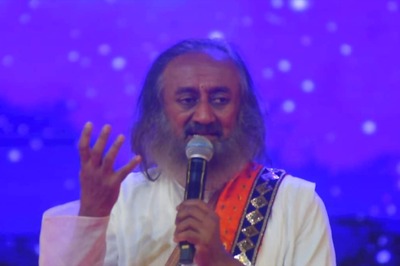
views
Berlin: Germany, Europe's biggest economy, will shut down all its nuclear power plants by 2022, a decision that would make it the first major industrialised power to go nuclear-free in the aftermath of the atomic disaster in Japan.
Germany's coalition government announced the decision after seven hours of negotiations that stretched into the small hours at Chancellor Angela Merkel's office.
"We want the electricity of the future to be safe, reliable and economically viable," Merkel told reporters.
"The events in Japan have shown us that even things that seem all but impossible scientifically can in fact happen," she said, ahead of her visit to India.
Minister of Ecology Norbert Roettgen of the Christian Democratic Union party made the announcement after negotiations with coalition partner, the Liberal Party, which had been opposed to setting a date for decommissioning the nuclear facilities.
"After long consultations, there is now an agreement by the coalition to end nuclear energy," he told reporters.
"This decision is consistent, decisive and clear," he said, describing the plan as "irreversible".
Merkel pushed through measures in 2010 to extend lifespan of the country's 17 reactors, with the last one scheduled to go offline in 2036, but she reversed her pro-nuclear stance after the earthquake and tsunami crippled the Fukushima Dai-ichi plant on March 11, triggering nuclear meltdowns.
Germany's energy supply chain "needs a new architecture," necessitating huge efforts in boosting renewable energies, efficiency gains and overhauling the electricity grid, Merkel said.
"The decision looks like this," Roettgen said. "Seven older nuclear power plants...and the nuclear plant Kruemmel will not go back online...a second group of six nuclear reactors will go offline at the end of 2021 at the latest, and...the three most modern, newest nuclear plants will go offline in 2022 at the latest."
Germany has 17 nuclear reactors, eight of which are currently off the electricity grid.
To make up for the loss of nuclear energy, the German government will begin to switch to renewable energy and increase investments in energy research.
Many Germans have been vehemently opposed to nuclear power since Chernobyl sent radioactive fallout over the country. Tens of thousands frequently demonstrated in the wake of Fukushima to urge the government to shut all reactors.
Merkel's government had ordered the country's seven oldest reactors, all built before 1980, shut down four days after the Fukushima incident. The plants accounted for about 40 per cent of the country's nuclear power capacity.
Germany's nuclear industry has argued that an early shutdown would be hugely damaging to the country's industrial base.




















Comments
0 comment